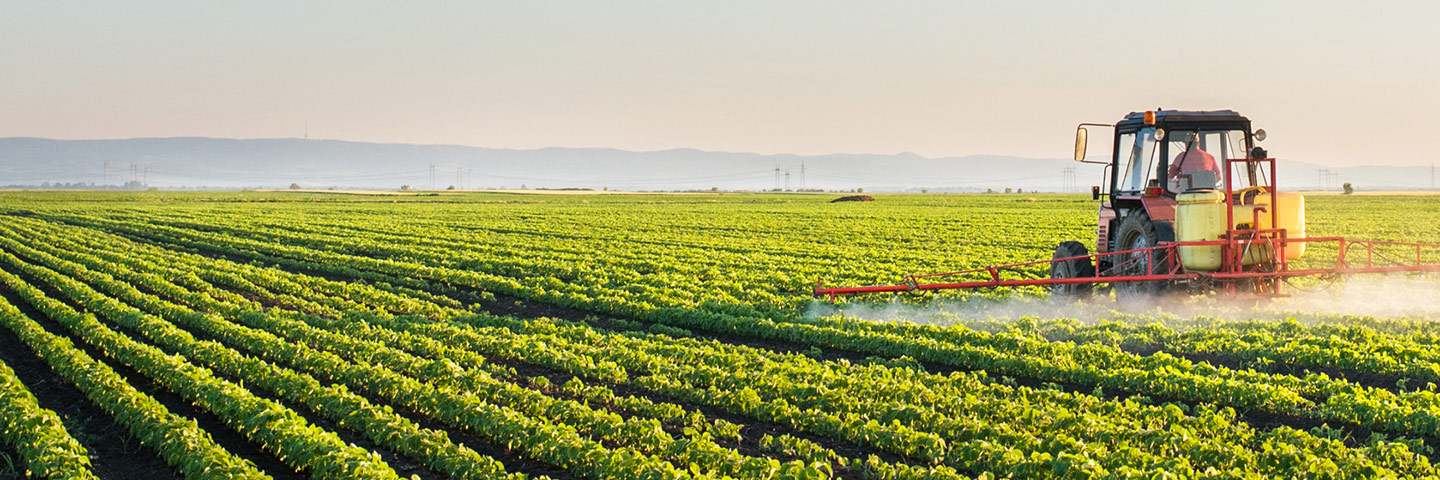
Prevent the loss of plant resources
 Plants are vital for life on Earth. Not only do they provide an essential source of oxygen and food, they also supply the basic materials needed for medicine, shelter, and clothing. While the globalization of trade and travel has helped ensure the accessibility of these valuable materials worldwide, it has also facilitated the introduction and spread of pests and pathogens that threaten plant quality and survival.
Plants are vital for life on Earth. Not only do they provide an essential source of oxygen and food, they also supply the basic materials needed for medicine, shelter, and clothing. While the globalization of trade and travel has helped ensure the accessibility of these valuable materials worldwide, it has also facilitated the introduction and spread of pests and pathogens that threaten plant quality and survival.
Every year, microbial pathogens claim approximately 10-16% of the global harvest and account for 6-12% of postharvest loss. Likewise, insects consume nearly 5-20% of essential grain crops throughout the world. These extensive losses in food crops have resulted in substantial economic losses totaling in the billions and has put a significant strain on food security. With over 800 million people throughout the world already lacking adequate nutrition, further depletion in the food supply could have devastating consequences.
Currently, there are a number of strategies in place to help protect plants against pests and pathogens. These tactics include good soil management, crop rotation, proper irrigation methods, and chemical control. More recently, biological control has emerged as an environmentally friendly pest management strategy. Here, harmful pest and pathogen populations are reduced through the use of other organisms. For example, the bacterium Bacillus thuringiensis (ATCC 55176) has been used in the biological control of Colorado potato beetles, and the fungus Trichoderma harzianum (ATCC 60850) has been used in the biological control of the pathogen Rhizoctonia solani (ATCC 10182). As a natural method of pest control, biological control helps reduce the use of chemical pesticides and is also cost-efficient and sustainable.
Plant Disease Research and Diagnostics
While ATCC is primarily known for its vast collection of bacteria, viruses, and cell lines, it also houses a substantial number of plant pathogen cultures. ATCC's plant pathogen culture collection serves as a valuable resource for researchers, educators, and industry professionals engaged in plant pathology and agricultural research. By providing authenticated and well-characterized cultures, ATCC contributes to the development of plant pathogen standards that are necessary for diagnostic accuracy and reliability to effectively manage plant diseases, facilitate safe trade, foster research and development, and protect public health and the environment.
Explore our collection of the major pathogens of corn, soybean, wheat, cotton, grape, almond, potato, strawberries, rice, apple, pistachios, sorghum, orange, tomato, sugar beet, blueberries, and APHIS-regulated invasive species to support your plant pathogen disease research & diagnostics.
Explore productsOur products for plant research
Biocontrol
Biocontrol is a pest management strategy used in agriculture that employs microbes or other organisms to reduce the population of a harmful target species. Explore our collection of microorganisms with potential applications in biocontrol research.
Bioremediation
Bioremediation techniques utilize aerobic and anaerobic microbial species to reduce biological contamination by breaking down pollutants into non-toxic substances. Explore our collection of microbial strains to see how we can support this area of research.
Understanding plant-pathogen interactions is also essential for preventing further loss of agricultural resources. With thorough knowledge on the pathogenic potential and transmission dynamics of microbial plant pathogens, researchers can not only discover novel ways to detect pathogens earlier but can also use this valuable information to create disease-resistant plants and test new methods of biological control.
At ATCC, we are committed to supporting research dedicated to protecting the world’s food supply. That’s why we provide the authenticated microbial strains needed to gain a better understanding of plant pathogens and identify new ways to stop them. Together, we can safeguard these valuable resources.
Plant virology
Viruses are a significant cause of plant disease and are responsible for extensive losses in crop production. Because plants are stationary, viruses are transmitted between plants via insects, pollen, sap, and seeds. Credible reference materials are needed for research into the transmission dynamics and pathogenic nature of these viruses as well as their impact on ecosystem stability.
See all our plant viruses